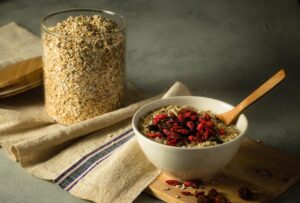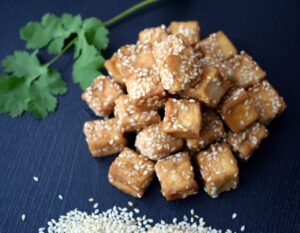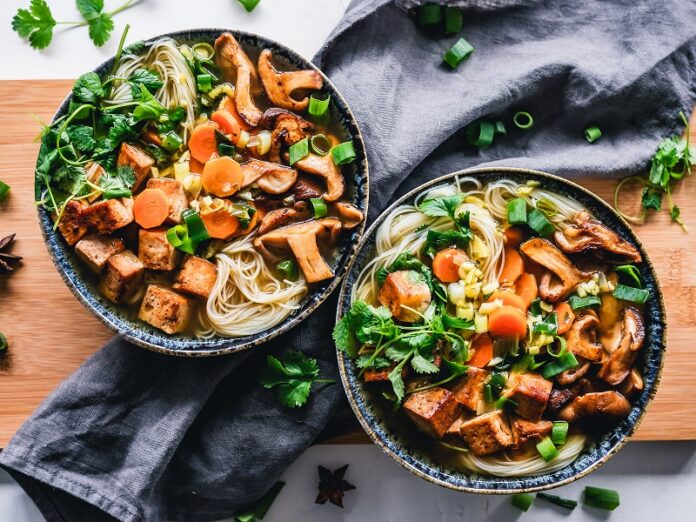Zinc is one of the most essential nutrients crucial for a fast metabolism, a strong immune function, and repair of body cells. It is required in numerous aspects of cellular metabolism and is also needed for the activation of approximately 100 enzymes. Zinc is an essential trace mineral, which means our bodies need it in a very small amount for good health. According to a recent study by Cleveland Clinic researchers, adequate Zinc intake has also proven to reduce severity or duration of COVID-19 infection.
However, the role of this necessary mineral in human body is often underestimated, and people sometimes fail to relate symptoms with zinc deficiency. The lack of this mineral is even more profound in vegans and vegetarians who struggle to meet their daily zinc requirement because plant-based foods contain zinc in minimal amounts when compared to animal-derived products. Since zinc takes more time to absorb from plant-based foods, it’s important to follow a well-balanced diet. Today, several prominent food companies fortify their products with zinc to provide sufficient amount of this mineral to consumers.
According to the National Institute of Health (NIH), the recommended daily intake of zinc should be as follows:
Male aged 14 and above: 11mg.
Female aged 14 and above: 9mg.
Pregnant Women: 11mg
Women who are lactating: 12mg
Zinc Deficiency Related Disorders


- Acne
- Loss of taste
- Poor wound healing
- Retarded growth
- Loss of appetite
- Impaired immune function
- Diarrhoea
- Delayed sexual maturation
- Hair loss
- Impotence and hypogonadism in males
Vegan Sources of Zinc
If you are a vegan, there is a possibility that you might possess a great risk of zinc deficiency. But worry not! There are plenty of plant-based foods to assist you in meeting your daily requirements.
Here we are listing 6 plant-based foods that are a good source of Zinc:
Beans and Legumes
All legumes and beans – black beans, kidney beans, chickpeas and black/green soybeans, amongst others – are high in protein and other important vitamins and minerals such as Zinc. Did you know that half a cup of chickpeas contains 1.3mg of zinc, and half a cup of kidney beans gives you 0.9mg of zinc!
It is crucial to keep in mind that all these beans and legumes contain a large number of phytates on their skin. Phytates are meant to protect the plant seeds. However, they reduce the absorption of important minerals in the body to a drastic level. Make sure to soak your beans and legumes beforehand or you can buy pre-soaked legumes and beans from brands available in the market.
Oats


Oats are one of the few grains which are rich in zinc and other important vitamins. Oats have proven to be a great source of potassium, calcium, magnesium and iron. As a matter of fact, half a cup of oats is enriched with 1.5mg of zinc. It is recommended to soak the oats overnight or cook thoroughly before eating for easy digestion.
Nuts and Seeds
Nuts and seeds are also known as heart-healthy fats, and are an excellent source of zinc. Hemp seeds, chia seeds, pumpkin seeds, walnuts, cashews, pecans, sunflower seeds and almonds can provide varying amounts of vitamins and minerals. One ounce of cashews consists of 1.6mg of zinc and a similar number of dry-roasted almonds have 0.9mg of zinc as well.
Tofu


Produced from soybean, Tofu is a superb source of zinc along with calcium, magnesium and protein. A four-ounce serving of tofu contains 1.8mg of zinc.
Wheat Germ
If you are not allergic to gluten, wheat germ is the perfect source of zinc, protein and Vitamin E.
Mushrooms
The health benefits of mushrooms make them very popular amongst vegans. Interestingly, these edible fungi are also a rich source of zinc, with a single cup of uncooked mushrooms providing 0.4 mg of this trace mineral. Adding them to your diet will give you a good amount of this nutrient without adding too many calories. Mushrooms are also an excellent source of the B-vitamin Riboflavin.


